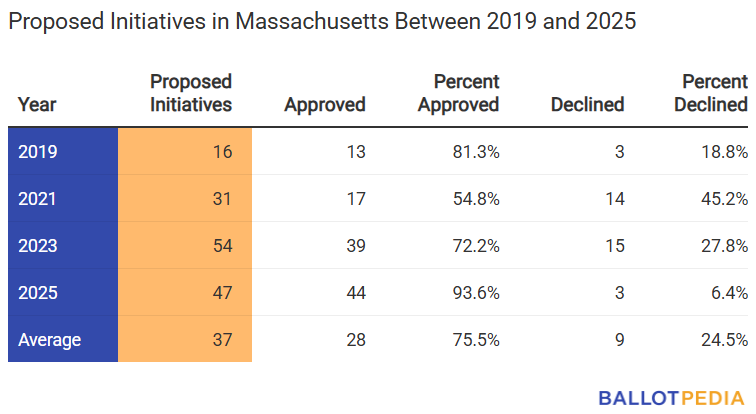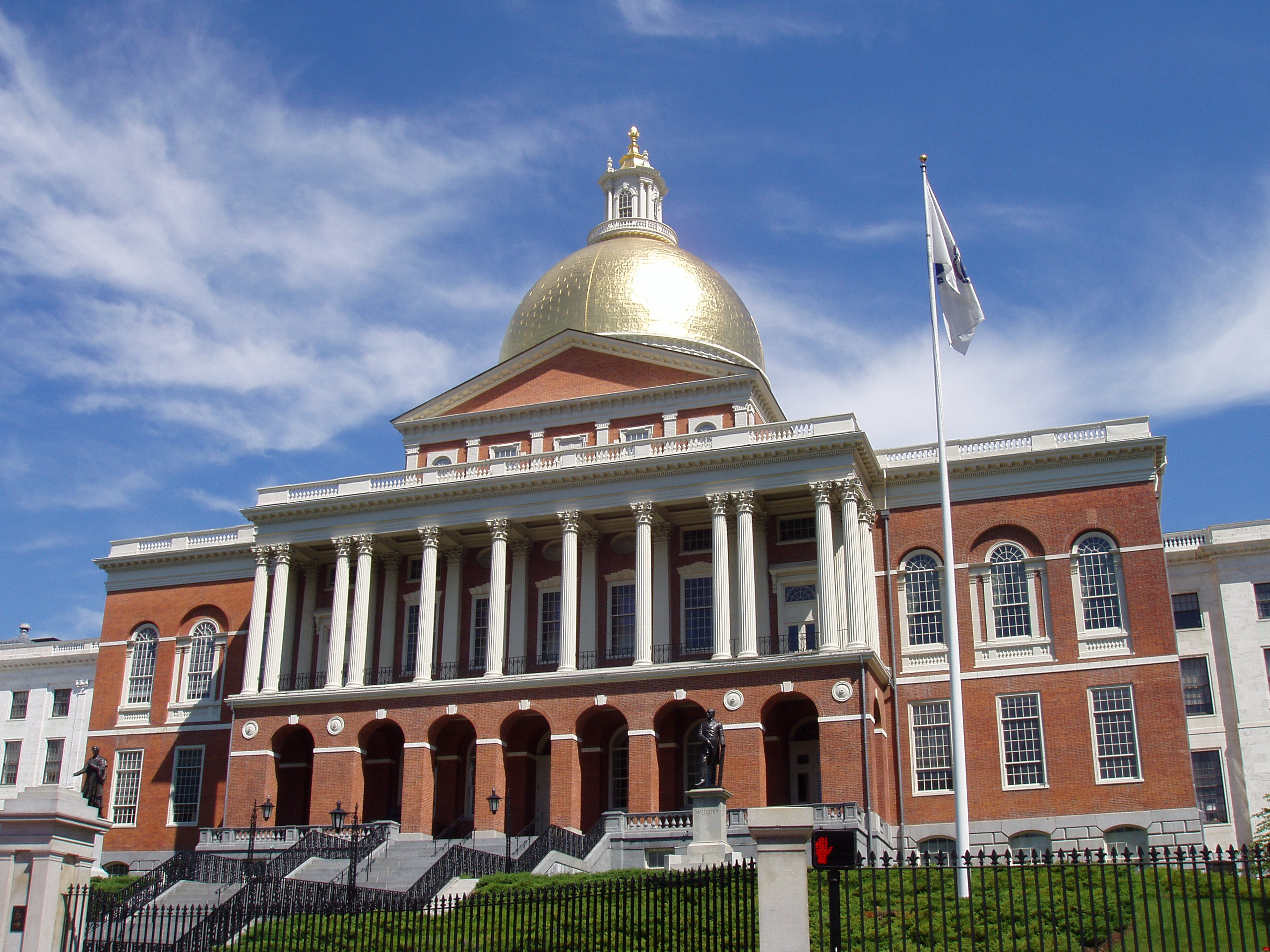The Massachusetts Office of the Attorney General announced on Sept. 3 that 44 separate initiative petitions have been approved to begin gathering signatures in support of the proposed laws.
The attorney general’s approval to gather signatures does not indicate support for the initiatives or a guarantee that the initiative will be placed on the ballot. Instead, it signifies that the attorney general has found that the initiatives do not violate the Massachusetts Constitution, address more than one subject, or address any restricted subjects. Restricted subjects include religion, the judicial system, the prohibition of alcohol, or the state declaration of rights.
With the attorney general’s approval, initiative organizers and supporters may begin gathering signatures in support of the initiatives. Supporters have until Dec. 3 to submit 74,574 valid signatures to send the initiative to the state legislature for their action.
Four of the initiatives that were approved by the attorney general are proposed constitutional amendments. The soonest they can be placed on the ballot for voters to decide is 2028. Organizations and individuals supporting the other 40 initiatives, initiated state statutes, can now gather signatures to place the initiative on the November 2026 ballot.
Initiatives declined by the attorney general
On Sept. 3, the attorney general's office announced that it had declined to certify three of the initiatives.
One of the initiatives was a proposed constitutional amendment. That initiative would have eliminated the ability of legislative leadership to set legislators’ bonus pay, benefits, and staffing needs. Instead, it would have created a citizens’ commission that would oversee the compensation of legislators and given the state auditor the power to review the spending of the legislative branch.
Two of the initiatives were proposed state statutes. One would have removed the existing mail-in voting system and instead required voters who wished to vote by mail to comply with the state’s absentee voting procedures.
The other declined initiative was a state statute that would create a top-two primary election system for state offices. While this initiative was declined by the attorney general, two similar versions of the initiative, proposed by the same organization, were approved to gather signatures.
The 44 approved initiatives address 28 unique topics, the most common being land use and development policy, utility policy, salaries of government officials, open meetings and public information, and income taxes.
Rent control initiative
One initiative approved by the attorney general is a measure that would establish a rent control policy in the state, prohibiting rent increases by more than the annual increase in the Consumer Price Index or 5%, whichever is less.
Homes for All Massachusetts is the organization campaigning in support of the measure. A statement on their website says, “Skyrocketing rents are displacing tenants, destabilizing communities, and destroying historic neighborhoods across our state. And unnecessary foreclosures are continuing to devastate families. Rent control and a state foreclosure prevention program are critical tools to prevent displacement and win housing justice.”
In response to the attorney general’s approval of the initiative, Greater Boston Real Estate Board CEO Greg Vasil made a statement in opposition to the measure. He said, "Rent control is a flawed, harmful policy that stunts housing creation and increases overall housing costs: A horrifying thought given the hundreds of thousands of units our state must build to overcome the housing crisis. Our state's focus needs to be on reducing barriers to housing creation so we can develop more homes across all price points, whether it be for young families looking to purchase their first home, or retirees looking to downsize in the community they have known for decades."
Citizens Against Eversource initiatives
Eliseu DeSousa, founder of Citizens Against Eversource, submitted six initiatives to the attorney general in August. All six would alter utility policy in Massachusetts. In a statement on Sept. 3, she said, “Families are tired of paying for programs and surcharges they never agreed to. These initiatives respect people’s budgets and their choices. If you want to fund optional programs, opt in. If you prefer a traditional analog meter, you should not be penalized. It is basic fairness, and it is long overdue.”
Christopher Thrasher, the legal architect of the initiatives, said, “Massachusetts families are getting strangled by Beacon Hill’s statutory spaghetti, with hidden fees, political favors, and bureaucratic schemes layered on top of one another. These initiatives cut through the tangle, put consumers first, and restore fairness: lower costs for families and an end to blank checks for utilities and special interests.”
Past proposed initiatives in Massachusetts
In Massachusetts, initiatives are proposed and approved in odd years preceding even election years. For example, initiatives on the 2020 ballot were proposed in 2019.

In 2025, 93.6% of initiatives proposed by citizens in Massachusetts were approved to gather signatures by the attorney general. This is higher than the average for the years between 2019 and 2025, which is 75.5% of proposed initiatives.
The year that had the highest number of proposed initiatives was 2023; that year, citizens filed 54 proposed initiatives. The two years that had the fewest number of declined initiatives were 2019 and 2025 (3 initiatives). The year with the largest number of approved initiatives was 2025 (44 initiatives).
Between 2019 and 2025, the average number of initiatives approved by the attorney general was 28 (75.5%), and the average number of initiatives declined was nine (24.5%).
In Massachusetts, citizens have the power to indirectly initiate constitutional amendments, state statutes, and veto referendums. These powers were established with voter approval of a ballot measure in 1918. Indirect initiatives are considered by the state legislature, which can approve state statutes outright, take no action, and send the amendment or statute to the ballot, amend the initiated amendment with a 75% vote of the state legislature, or propose an alternative to be placed on the ballot alongside the initiated amendment.
For indirect-initiated state statutes, sponsors must collect signatures equal to 3.5% of the votes cast in the last gubernatorial election in two rounds. For indirect constitutional amendments, the number of signatures required is equal to 3% of the votes cast in the last gubernatorial election. Massachusetts also has a signature distribution requirement; no more than 25% of the certified signatures on any petition can come from a single county.
Read more: Massachusetts 2026 ballot measures



